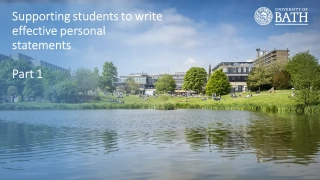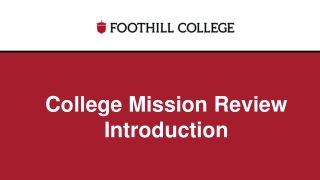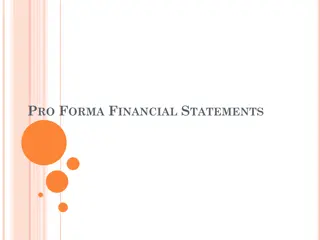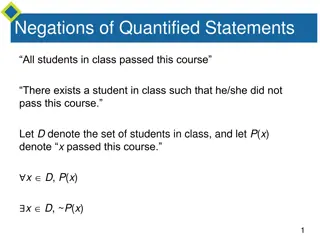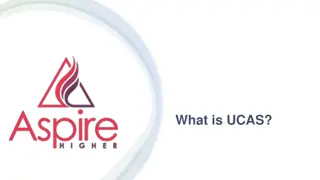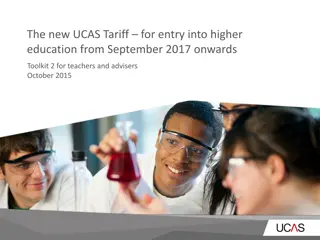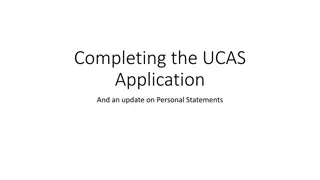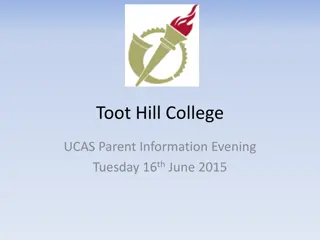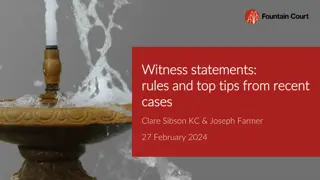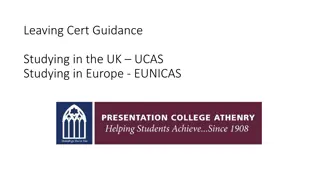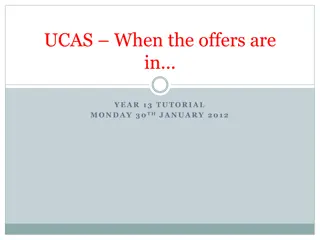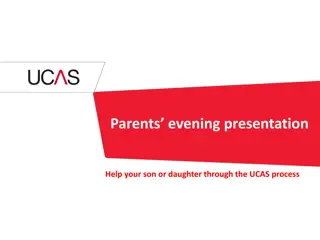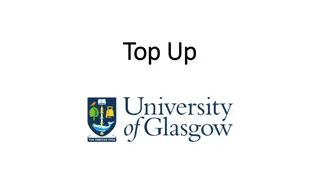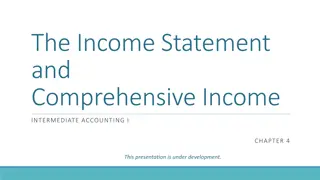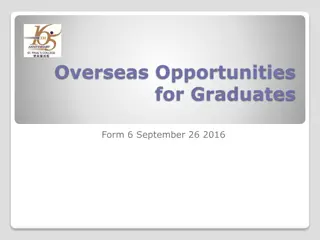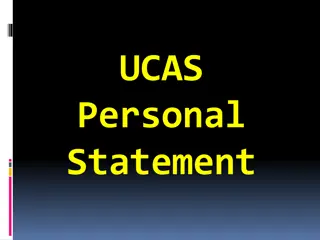Importance of Research in Writing UCAS Personal Statements
Crafting a personal statement for UCAS applications is a critical step that often causes applicants stress. Mistakes commonly occur in the Education section, but thorough research and strategic choices can greatly enhance an application. By understanding what providers seek in an ideal candidate, applicants can demonstrate their preparedness, reflective thinking, and familiarity with higher education expectations. It is essential to allocate sufficient time for revisions and improvements to maximize the statement's effectiveness. Resources and tools are available online, but caution must be exercised to avoid plagiarism detection by UCAS. Failure to maintain originality can result in serious consequences, ranging from rejection to further inquiries and potential rewrites.
Download Presentation

Please find below an Image/Link to download the presentation.
The content on the website is provided AS IS for your information and personal use only. It may not be sold, licensed, or shared on other websites without obtaining consent from the author. Download presentation by click this link. If you encounter any issues during the download, it is possible that the publisher has removed the file from their server.
E N D
Presentation Transcript
Research is of vital importance Writing the personal statement is the part of the UCAS application process that causes applicants most concern Though most mistakes are made in entering qualifications etc in the Education section of the application! Thorough and effective research and making wise choices that spread the risk, can help enormously Applicants can work out what the providers are really looking for in an ideal student and what is therefore most important to include and will add most value This will show that they have done their research and are reflective thinkers At the heart of connecting people to higher education
The parameters Minimum 1000 characters Maximum 47 lines or 4000 characters (whichever is reached first, as blank spaces count toward character total) It is not very long but is likely to take more time than you think to maximise the strengths, minimise the weakness and make it the best that it can be so: Leave yourself plenty of time Be prepared to work on it, do re-writes, and polish it It is a process At the heart of connecting people to higher education
Information and tools are available On the UCAS website https://www.ucas.com/ucas/undergraduate/apply-track/writing-personal-statement On providers websites On other websites E.G. Youtube: How to write an excellent personal statement In publications But don t copy or buy them UCAS checks for similarities! At the heart of connecting people to higher education
UCAS similarity detection service statement through similarity detection( Copycatch ) UCAS puts EVERY personal DO NOT This checks it against: Other personal statements from the same cycle and earlier cycles Known websites Known publications 3d : Shiny 3d Skull and Crossbones, isolated on a black background. FORGET At the heart of connecting people to higher education
What happens? if potentially copied material is identified in a personal statement: Applicant is sent an email and can view a copy of their statement with copied material highlighted in different colours Fraud correspondents at course providers are emailed the same School/college can see flag in applicant record Course providers decide what to do For very competitive courses and providers, it can be reason enough to record an unsuccessful decision Others may put consideration on hold while they contact the applicant for an explanation, and may ask them to write another personal statement At the heart of connecting people to higher education
A key will identify what each colour means e.g. the same as material in a statement submitted on ; the same as material on the website www .; the same as material found in the publication entitled Black underlining signifies changed words in a sentence I have always been fascinated by the way writers can influence and even manipulate readers emotions by their expression of thoughts and by their ability to encourage the expansion of our imaginations and understanding. My favourite authors include Phillip Pullman and Caroline B Cooney whose novels are inspiring because of their enviable lucidity and innovative character development. I had a vivid imagination as a child possibly influenced by my interest in the captivating work of such authors as Enid Blyton, Roald Dahl and Charles Kingsley. I still enjoy reading in my spare time. It is impossible for me to choose my favourite book but I have taken pleasure numerous times in reading 'A Child Called It' by Dave Pelzer, a book which I find mesmerising and deeply moving and 'Little Women' by Louisa May Alcott, a powerful and inspiring novel. I enjoy literature that can provoke a range of emotions in the reader from start to finish and I think that these books fit the bill perfectly. What attracts me most to English is not only the chance to expand my literary knowledge, but the opportunity I am given to communicate my own thoughts and ideas. At the heart of connecting people to higher education
M A C K aturity Show me that you are ready for higher learning and university/student life Show me that you understand and can handle the content and pressures of the chosen course bility ommitment Let me know why this particular subject and convince me that you will see it through nowledge Let me know that you have done your research and are a reflective thinker At the heart of connecting people to higher education
What do admissions staff look for? A real feel for YOU as an INDIVIDUAL - What s YOUR story? Why you chose the SUBJECT Evidence of: a real commitment to and critical engagement with the subject effective research reflective thinking relevant transferable skills an ability to work out what is most important to include and give the relevant depth of coverage supported by concreteevidence and examples your ability to write effectively to convey all of the above clearly, concisely and precisely in plain English prose within the limits set. At the heart of connecting people to higher education
Writing style Plain English is best Use a varied vocabulary (but not words or foreign phrases you are unfamiliar with); avoid non-sequiturs, waffle and repetition; be clear, concise and precise; avoid errors in spelling, punctuation and grammar Try to have an interesting opening to catch the reader s attention Not Ever since I was very young I have been interested in Should be well structured Written in paragraphs that flow well Should relate very strongly to the chosen subject/course At least 2/3 should relate to this Unless strongly vocational (when you need to explain how you know this is the right career for you and that you are right for it as much as 40% - 50%) End strongly Bring it all together and round off positively; don t just end abruptly or trail off At the heart of connecting people to higher education
Ensure you statement makes you stand out from the crowd for good reasons not bad ones Try not to come across as a clever Dick or smart Alec Write a poem instead of prose Use text speak to make more room Refer to a website as it will tell them more about you Don t boast or brag This is better done on your behalf by your referee! Be positive Don t criticise your teachers, school, curriculum etc. Don t commit GBH on the English language! Make sure your statement works for ALL choices Don t mention one by name (except in particular circumstances e.g. if you attended a summer school or taster course etc.) At the heart of connecting people to higher education
Quotes Many more applicants use them than you might think Especially for opening personal statements If you do use quotes, ensure they are: Relevant / there for a reason Short / pithy / to the point Not commonplace or trite Not left hanging with no purpose Sourced A wise man once said, How dreadful knowledge of truth can be when there s no help in truth. At the heart of connecting people to higher education
Humour A tricky call or a sticky wicket? Although an applicant may be funny to peers, will admissions staff (particularly those of another generation) appreciate their humour? Is a UCAS personal statement the right place for it? Is it appropriate for the chosen subject? Think what is likely to appeal most broadly At the heart of connecting people to higher education
How to write about skills the ABC method The ABC rule and the So What? test http://t3.gstatic.com/images?q=tbn:IWw_ErbeXPj1WM:http://www.littlestomaks.com/blog/wp-content/uploads/2008/10/traffic-lights1.jpg Activity: What have you done? Good Benefit: What skills have you gained? Better Best Course: How will this prepare you for the course? TIP: GIVE IT THE SO WHAT? TEST (Could an Admissions tutor say So what? to anything in it? If so, work on it more or consider if it needs to be included)
Good reasons: showing subject insight During Work Experience Observing a dentist Saw him/her calm a distressed patient Realised how important communication skills are for dentistry At the heart of connecting people to higher education
Good reasons: showing critical thinking and analytical ability During a History debate I had to critique the argument of the opposition Needed to listen carefully to identify flaws in their argument; then took the lead in prioritising the points that we wished to make in support of our case. As a result, our team won the debate At the heart of connecting people to higher education
Good reasons: being concise Get into the habit of being very critical with the number of words you use in each sentence. Once you have written something, go back and decide if each and every word you recently wrote deserves to be there. Get into the habit of being very critical with the number of words you use in each sentence. Once you have written something, go back and decide if each and every word you recently wrote deserves to be there. Be ruthless with excess words - take no prisoners! At the heart of connecting people to higher education
Good reasons: critical engagement and reflective thinking I have always been fascinated by the past, beginning with childhood interests in time-travel and mythology. This interest continued with student exchanges to France and Germany, giving me the opportunity to study 18th century French history and dictatorship respectively, broadening and deepening my historical scope. A subsequent trip to Poland, where I studied archived materials relating to the World Wars, fortified my interest in historical research and my decision to pursue the subject at degree level. At university I look forward to analysing varied interpretations of history and the original sources upon which they are based. At the heart of connecting people to higher education
A law applicants first draft I enjoy watching football, I play basketball for Coventry schools, I sing in a choir, I am doing the Duke of Edinburgh Award scheme, I am a member of a debating society, I work in Tesco on Saturdays and I shop for my Granny on Monday after school. http://t1.gstatic.com/images?q=tbn:kLx599lDgQ2wBM:http://www.dailyclipart.net/wp-content/uploads/medium/Sports8.jpg SO WHAT? What would Admissions tutors want to know more about? See full size image At the heart of connecting people to higher education
Second draft expands a key activity I have been an active member of an East Midlands debating society for the last three years. This has proved really interesting as I have had the chance to research and defend viewpoints that I would normally not agree with; an exercise which I m sure will be prove valuable as a Law degree student. At the heart of connecting people to higher education


